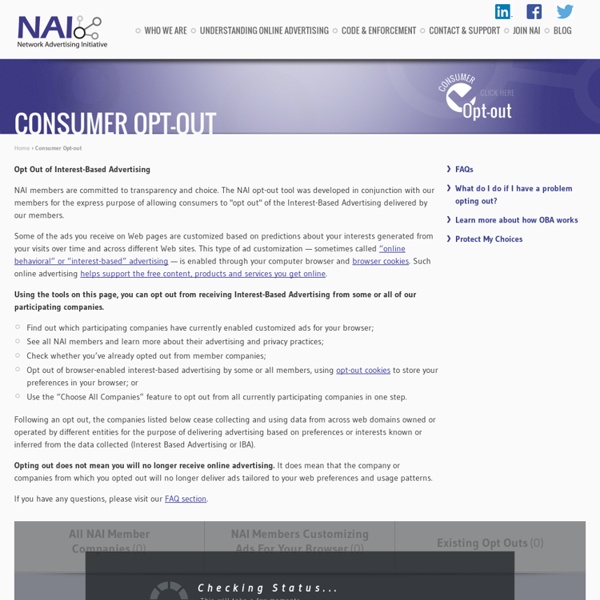Network Advertising Initiative
Opt Out of Interest-Based Advertising NAI members are committed to transparency and choice. The NAI opt-out tool was developed in conjunction with our members for the express purpose of allowing consumers to "opt out" of the Interest-Based Advertising delivered by our members. Some of the ads you receive on Web pages are customized based on predictions about your interests generated from your visits over time and across different Web sites. Using the tools on this page, you can opt out from receiving Interest-Based Advertising from some or all of our participating companies. Following an opt out, the companies listed below cease collecting and using data from across web domains owned or operated by different entities for the purpose of delivering advertising based on preferences or interests known or inferred from the data collected (Interest Based Advertising or IBA). Opting out does not mean you will no longer receive online advertising.
Related:
Related:



